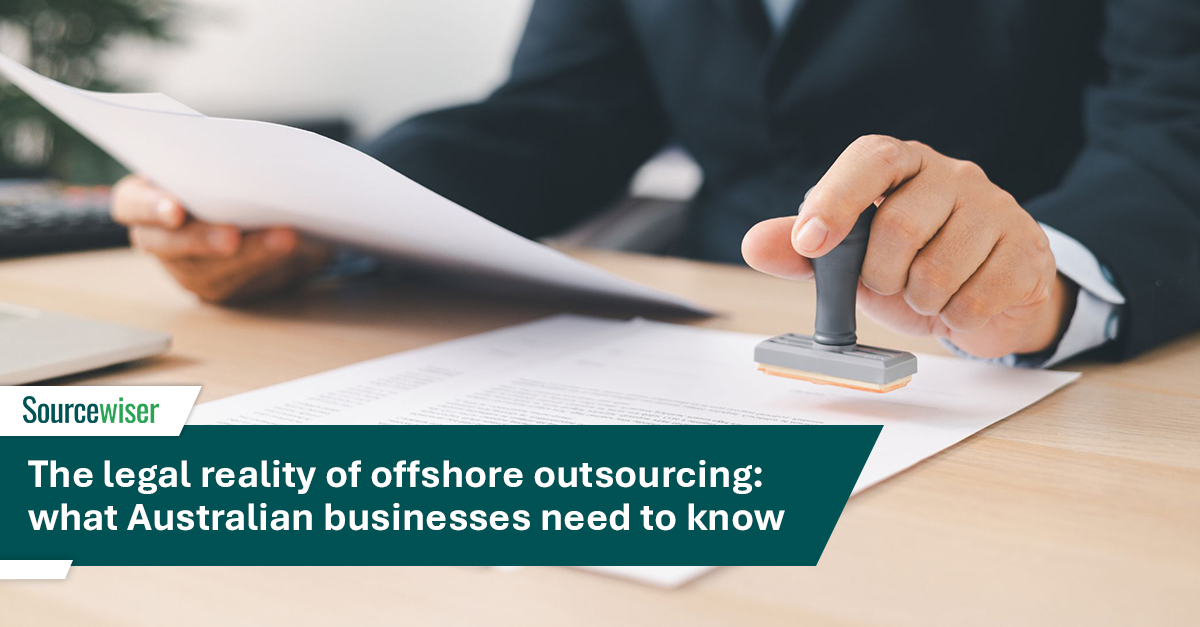For too long, outsourcing has been viewed in narrow, transactional terms: move tasks offshore, pay less, and hope to save money.
That mindset is outdated.
Today, the global outsourcing market is worth more than US$350 billion and continues to grow at 6–8% annually. But this growth is not being driven by cheap labour. It’s being fuelled by organisations reframing outsourcing as a pathway to innovation, agility and strategic leverage.
The businesses leading the way are those treating providers not as vendors, but as value partners.
If your team is considering outsourcing in the Philippines or shaping a broader BPO strategy, now is the time to shift perspective. The old “cheap labour” paradigm is gone. The real opportunity lies in relationships built on shared ambition and co-innovation.
Why the "cheap labour" view no longer works
In the early days, outsourcing in the Philippines and other hubs was often justified purely by labour arbitrage. But cost savings alone create fragile relationships: high churn, weak alignment, hidden risks, and limited differentiation.
Today’s reality is very different:
- The Philippines has a 1.82 million-strong BPO workforce, with specialisation in finance, CX, IT and analytics.
- The sector contributes nearly 10% of national GDP, underpinned by digital maturity and global delivery standards.
- Leading providers compete on domain expertise, service quality, automation and cultural alignment — not just how cheaply they can provide labour.
When outsourcing is treated as a cost play, results plateau. But when treated as a strategic lever, outsourcing opens access to talent that can ideate, optimise, automate and deliver outcomes.
Why value-driven partnerships matter
Reframing outsourcing isn’t about semantics — it’s about reshaping business performance.
- Shared outcomes, not task completion
The best partners align with enterprise goals — improving CX scores, speeding time-to-market, and driving revenue growth. - Flexibility and agility
A purely transactional model won’t keep pace with change. Partners provide scale-up/down flexibility and hybrid delivery models across multiple geographies. - Trust and long-term orientation
Gartner research shows that strategic outsourcing partnerships are 30% more likely to deliver sustained cost benefits and efficiency over five years. - Sector maturity and integration
Mature partners bring domain knowledge and seamlessly integrate into systems and workflows, reducing time to value.
With this approach, outsourcing becomes less about what you save, and more about what you achieve together.
How to make the shift
Transitioning from vendor to value partner requires deliberate action:
- Adopt hybrid delivery models
Combine onshore, nearshore and offshore capability to balance cost, resilience and responsiveness. - Leverage AI-enabled services
By 2027, over 60% of BPO contracts will involve AI-enabled service delivery. Work with providers embedding AI, machine learning and automation to reduce manual effort and amplify business intelligence. - Move to outcome-based contracts
Replace activity-based SLAs with results-based agreements — tied to CX scores, cost efficiency, or time-to-market. This ensures alignment and incentivises innovation.
These steps elevate outsourcing from a support function to a strategic growth engine.
Rethink. Recalibrate. Partner.
The definition of outsourcing is evolving. The winners will be those who see it not as a cost centre, but as a growth lever.
The Philippines — with its scale, maturity, and talent depth — is a natural hub for value-driven outsourcing. But the real differentiator lies in how you build the partnership.
If you’re ready to shift from vendor relationships to true value partnerships, start here: How to choose the right outsourcing partner in the Philippines.




